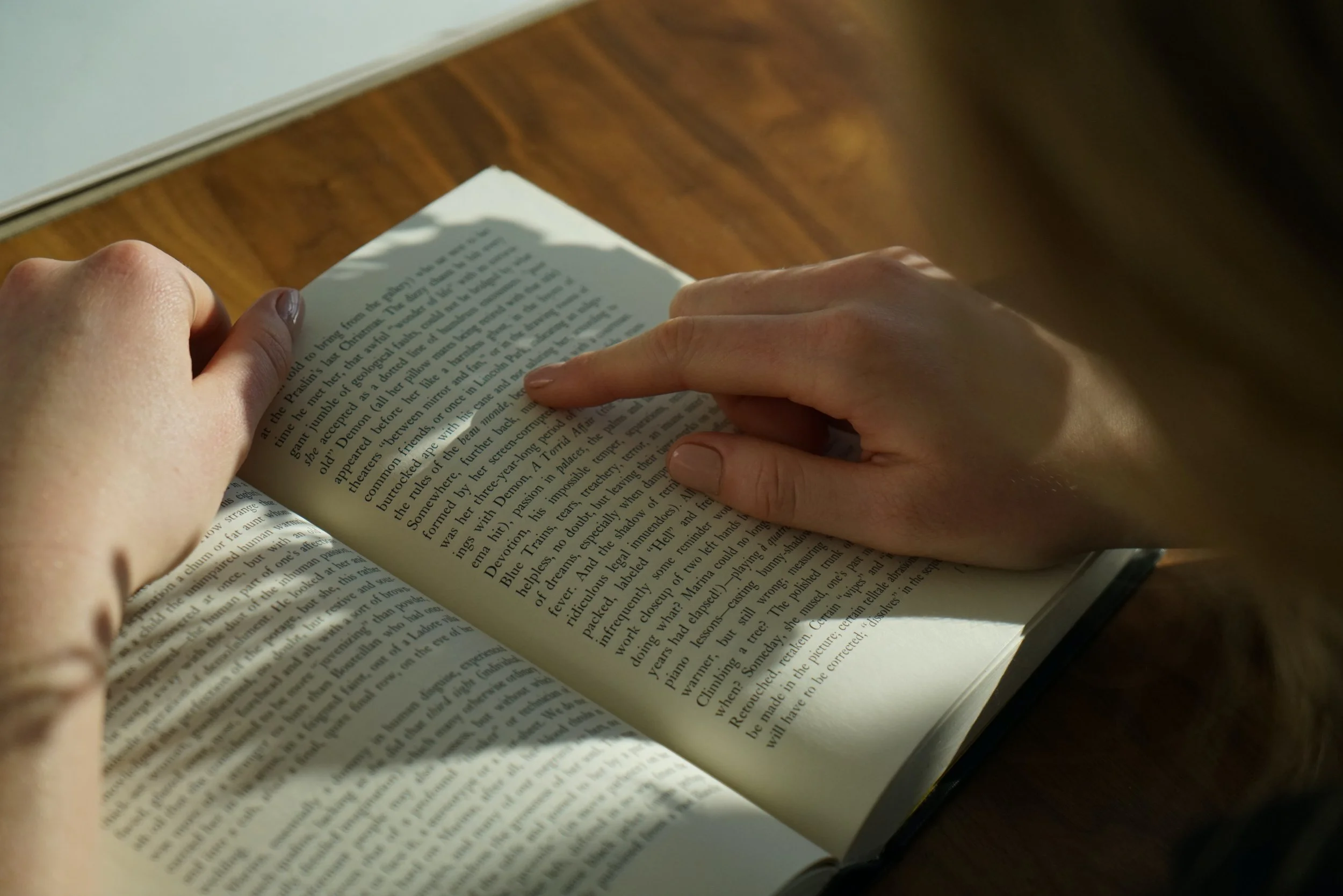Reading Advice for College Students
Reading Questions
As a professor who assigns a non-trivial amount of reading, I get asked a lot about reading advice. Questions like:
I’m spending way too much time on reading. Do you have any tips that will make reading go faster?
How do I know what to focus on in my reading?
How can I remember what I read?
What’s the best way to take notes on a reading?
My Story
College-me trying to read a long passage for school.
I asked all of these questions myself when I was a student. In fact, throughout my student life I considered myself a “slow reader.” I always envied my friends who seemed to blitz through a passage, while I labored for hours to complete a reading assignment.
I went all the way through graduate school as a “slow reader.”
But the summer after I earned my PhD, I decided no more. I knew that if I was going to be successful in my career, I had to find a better way. So I went on a quest to find the best strategies for reading and comprehension.
I had three main goals in my quest to become a better reader:
To increase reading speed.
To increase understanding of what I read.
To remember more of what I read.
After weeks and months of research, reading, and–as it turns out–practicing, I emerged at the end of that summer of 2011 with a whole new mindset. I not only no longer considered myself a slow reader, I knew for a fact I was pretty darn fast. And as I got quicker at reading, I was somehow also understanding more of what I read, and remembering it with a clarity that was unsettling.
I plan to share these insights over a series of short essays I’m calling “Reading Advice for College Students.” I’ll start here with an overview of the most important takeaways, then dive deeper into specific topics over time. Follow the Reading Advice for College Students tag if you want to see future writing on this topic.
Reading Advice for College Students, In Brief
Tip 1: Aim for understanding, not “reading.”
The goal is not to read every word, but to understand what the author is trying to communicate.
Tip 2: Always set a timer, and read a complete passage in one sitting.
Divide your reading into passages, and focus without distraction on reading until you come to the end of a passage. This will do wonders for your comprehension and recall.
Tip 3: Skim actively to get more from your reading.
Don’t skim passively. Instead, ask simple reflection questions about titles, headings, and sections to engage your mind in what you are skimming.
Tip 4: Ask the three magic questions to improve your command of readings.
The three magic questions are: What is it about? What is the main claim? What are three or four pieces of evidence the author uses to make their point?
Tip 5: Use the reading depth chart to know when to stop reading.
Not all reading should be approached with the same level of depth. Sometimes you only need to know the general topic and main claim of a reading. Other times, you are responsible for knowing every argument, example, and piece of evidence in detail.
Tip 6: Use your finger as a reading pacer.
Underline the words with your finger as you read to keep your eyes moving forward and not regressing. This approach seems silly, but it will dramatically improve your reading speed.
Tip 7: Apply deliberate practice to increase reading speed and comprehension.
If you really want to get better at reading, you need to practice these techniques and improve your skill. As I explain in The Slow Way Is the Fast Way, it will feel slow at first, but will save you time in the long run.
In the posts that follow, I’ll be describing these tips in more detail. Hopefully you will find a strategy or approach that will transform you into a more confident reader. It won’t happen overnight, but I assure you it will be worth it.
Photos by Sebastian Molinares and Thought Catalog on Unsplash.

